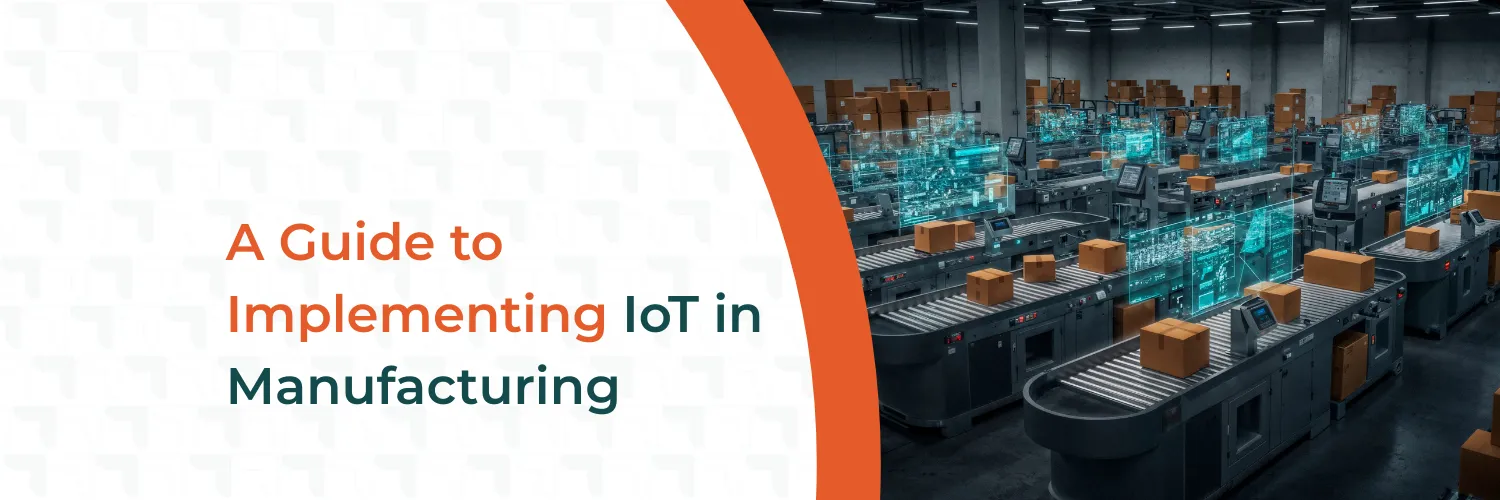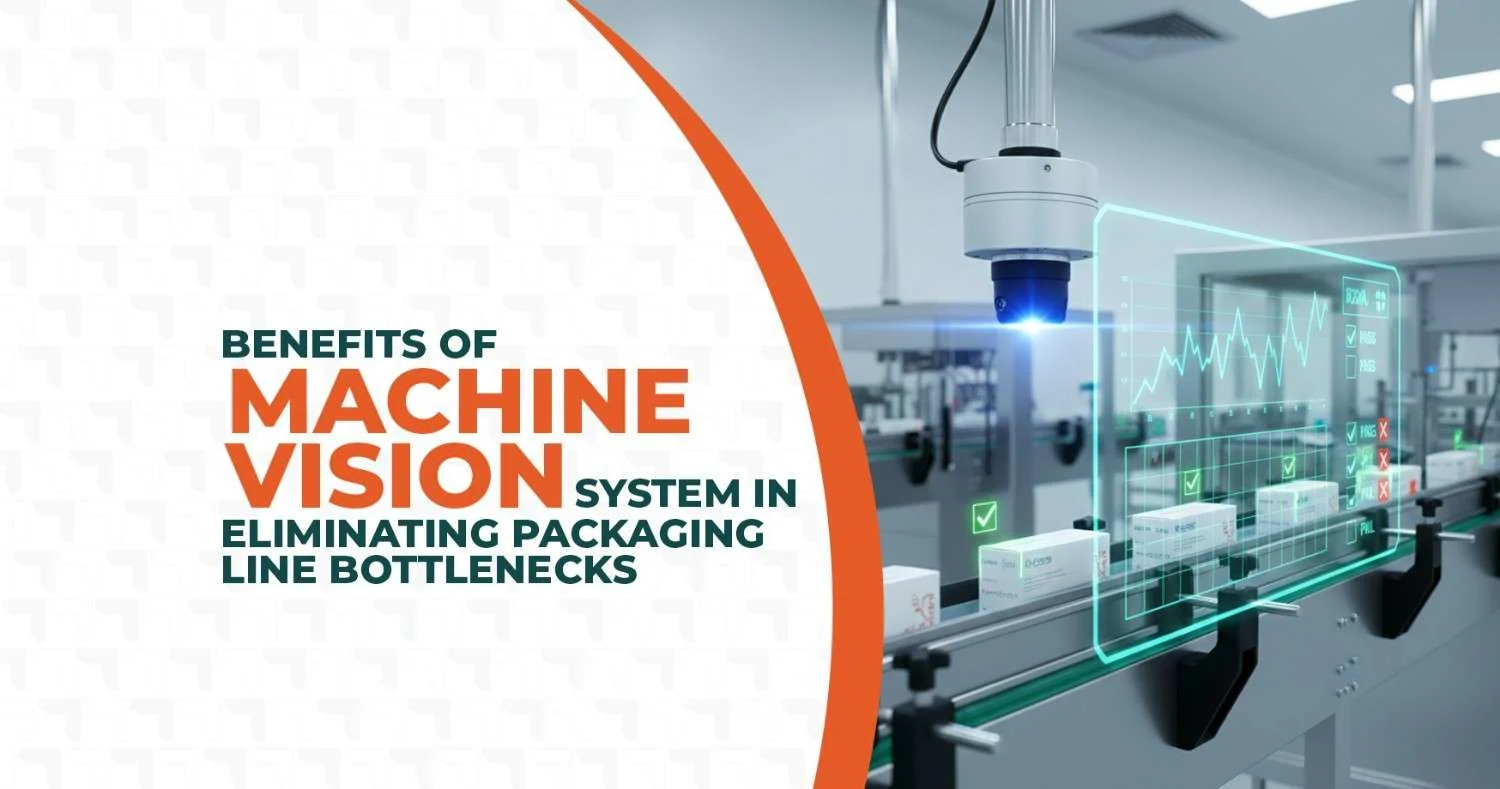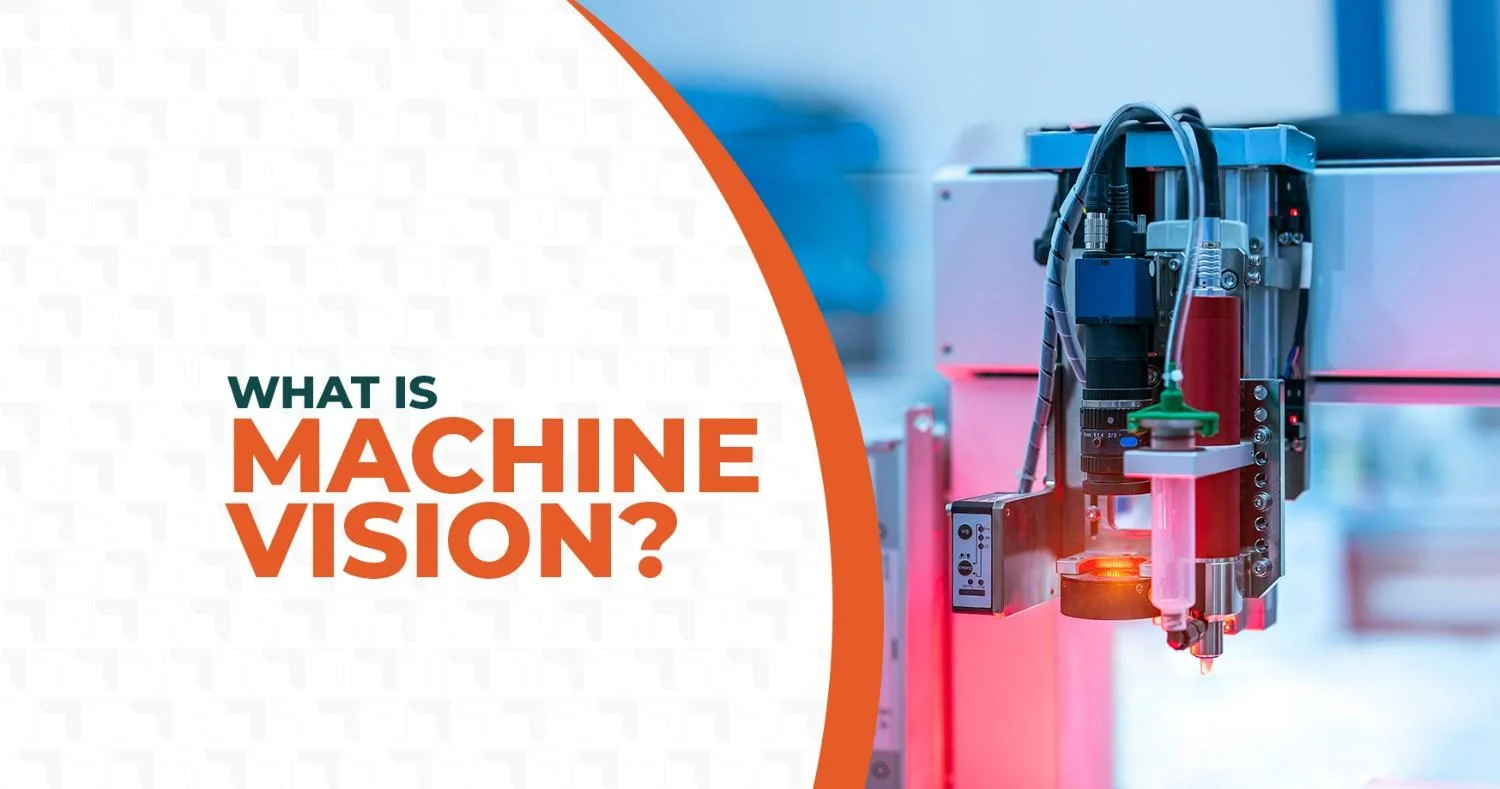
A Guide to Implementing IoT in Manufacturing
New digital technologies are causing a lot of changes in the manufacturing sector. Manufacturing with the Internet of Things (IoT) is one of the most significant changes. Connecting commonplace machines and gadgets to the Internet is known as the Internet of Things.
IoT in manufacturing enables the connection and monitoring of items such as products, workers, and machines. This connectivity can completely change the way manufacturers do business. Businesses expect the adoption of IoT to result in efficiency gains of 12 percent overall over the next five years. Let's look at IoT applications in manufacturing and some of the main advantages they offer.
How is IoT Used in Manufacturing?
There are several main ways IoT is applied in the manufacturing industry:
1. Asset Monitoring and Predictive Maintenance
IoT sensors can continuously monitor the state of machinery equipment and other essential assets. Instead of waiting for things to break down, this enables manufacturers to forecast when maintenance will be required.
Through sensor data analysis, the system can detect early issues and notify workers to take corrective action before a major failure happens. This predictive maintenance extends the life of costly production machinery.
2. Supply Chain Optimization
The supply chain can be fully transparent thanks to IoT, which can track materials inventory levels and shipment status at every stage. By using supply chain tracking, manufacturers can better manage their logistics and guarantee that materials arrive on schedule and products are delivered on time.
For instance, shipment location, environmental conditions, and security can be tracked in real time by IoT sensors mounted on trucks and containers. The manufacturer gets notification right away in the event of a problem so they can take appropriate action.
3. Quality Control and Process Improvement
IoT sensors placed all over the production line can keep an eye on each stage of the manufacturing process. The system can automatically make adjustments or notify staff to address problems if it notices anything that isn't working properly, such as a machine operating outside of normal parameters or a product defect.
You can ensure consistent, high-quality output through this ongoing quality control. Additionally, the data collection offers insights to support ongoing manufacturing process improvement.
4. Energy and Resource Management
Manufacturers can thoroughly monitor energy, water, and other resource usage across a manufacturing facility with the help of IoT. This knowledge lowers operating expenses and eliminates waste.
Real-time tracking of electricity, power, and water consumption is possible, for instance, through IoT-connected smart meters and sensors. With this information, the manufacturer can then optimize energy use, pinpoint areas of waste, and even set up automated controls for energy-hungry machinery.
5. Safety of Workers and Efficiency of Work
The movements, activities, and safety conditions of factory workers can be tracked by wearable Internet of Things devices such as location trackers or intelligent hard hats. Manufacturers can enhance productivity, avoid mishaps, and streamline processes by analyzing this data.
The Benefits of IoT in the Manufacturing Industry
IoT implementation in manufacturing can offer several advantages, such as
1. Higher Productivity and Efficiency
Higher overall productivity and efficiency can result from the automation and optimization made possible by IoT solutions, which can cut down on waste, downtime, and other inefficiencies throughout the manufacturing process.
2. Improves the quality of the product
Manufacturers can maintain consistent, high-quality production, thanks to the automated adjustments and real-time monitoring made possible by IoT. Customers are happier when there are fewer recalls and defects.
3. Extends lifecycle
Expensive manufacturing machinery and equipment have their usable lives extended through predictive maintenance that uses data from IoT sensors. This helps to prevent the expensive downtime and repairs that result from broken equipment.
4. Better Capability for Making Decisions
A far more transparent data-driven picture of their manufacturing operations is presented to managers and executives by the data and insights that IoT systems provide. This enables them to decide more wisely and intelligently.
5. Reduces Costs
Significant cost savings for the manufacturer can be achieved by using IoT to reduce energy consumption, optimize logistics, and automate repetitive tasks.
6. Happier Customers
Better customer satisfaction and loyalty across the product manufacturing journey are the results of efficiency, quality, and responsiveness. These improvements are made possible by IoT.
7. Overcoming IoT Implementation Challenges
Even though the manufacturing sector stands to gain greatly from IoT, there are a few major obstacles that producers must overcome.
8. Privacy and Data Security.
With the state of cybersecurity today it makes sense to put data security measures in place to fend off common threats. This covers setting up incident response plans in the event of a breach, updating software regularly, encrypting data, and controlling access.
9. Integration
When implementing IoT in manufacturing, it's common to connect multiple platforms, software systems, and devices. It can be difficult and time-consuming to make sure that all of these parts function as a unit. A comprehensive integrated system architecture must be built by manufacturers after carefully assessing IoT technology options for compatibility. It is also crucial that all of their locations have dependable, fast internet access.
10. Management of Change
Automation enabled by IoT and data-driven decision-making has the potential to drastically alter job roles, workflows, and procedures in the manufacturing industry. For an IoT implementation to be successful, managing this organizational change and gaining employee buy-in is essential.
11. Flexibility and Scalability.
The Internet of Things system needs to be scalable and adaptable enough to take into account changes in new technologies and increasing amounts of data as manufacturing needs change. Future-proofing their IoT infrastructure is a necessity for manufacturers.
Best Practices for IoT Implementation
Manufacturers ought to adhere to these best practices to get past these obstacles and fully reap the rewards of IoT.
1. Set Critical Use Case Priorities
For your manufacturing challenges, start with high-impact, focused use cases like supply chain optimization, asset monitoring, and quality control.
2. Ensure Robust Data Security
To safeguard your IoT systems and data, put robust security measures in place. These include encryption, access controls, and frequent software updates.
3. Encourage Collaboration:
To guarantee cross-functional alignment and promote cooperation during the implementation process, include stakeholders from a variety of departments, such as IT operations and maintenance.
4. Invest in Workforce Development:
Give your staff extensive training on data analytics, IoT technologies, and system management to ensure they are prepared to use and maintain the new systems efficiently.
5. Use a Phased Approach
Bring IoT into your manufacturing operations gradually and in stages so that you can test and optimise it before going full-scale. In addition to ensuring a smoother transition, this can help reduce risks.
6. Continuously Monitor and Optimise:
Evaluate your IoT system's impact and performance regularly. Be ready to modify your plans and procedures as necessary to maximise their efficacy over time.
Adopting IoT will become more and more important for businesses as the manufacturing sector develops to stay competitive and adjust to shifting market dynamics. Manufacturers can increase productivity, boost customer satisfaction, improve product quality, and position themselves for long-term success in the dynamic world of modern manufacturing with IoT solutions.
Take your manufacturing a step further by partnering with BCI top IoT solutions company. Call us right now.
FAQs
1. What is smart manufacturing?
Smart manufacturing refers to integrating advanced technologies, such as data analytics, automation, and artificial intelligence, into manufacturing processes to improve efficiency, productivity, and quality. It involves using interconnected systems, real-time data, and intelligent decision-making to optimize various aspects of the manufacturing workflow, from supply chain management to product design and quality control.
2. What are the examples of IoT devices in manufacturing?
Some examples of IoT devices used in manufacturing include sensors that monitor equipment performance and environmental conditions, and wearable devices that enhance worker safety and productivity.
3. What is the future of IoT in manufacturing?
The future of IoT in manufacturing is promising, with the potential to drive significant improvements in areas such as predictive maintenance, supply chain optimization, energy efficiency, and enhancing product quality. As the technology continues to evolve and become more ubiquitous, manufacturers expect to see increased automation, real-time decision-making, improved sustainability, and enhanced data-driven insights to help them stay competitive.



